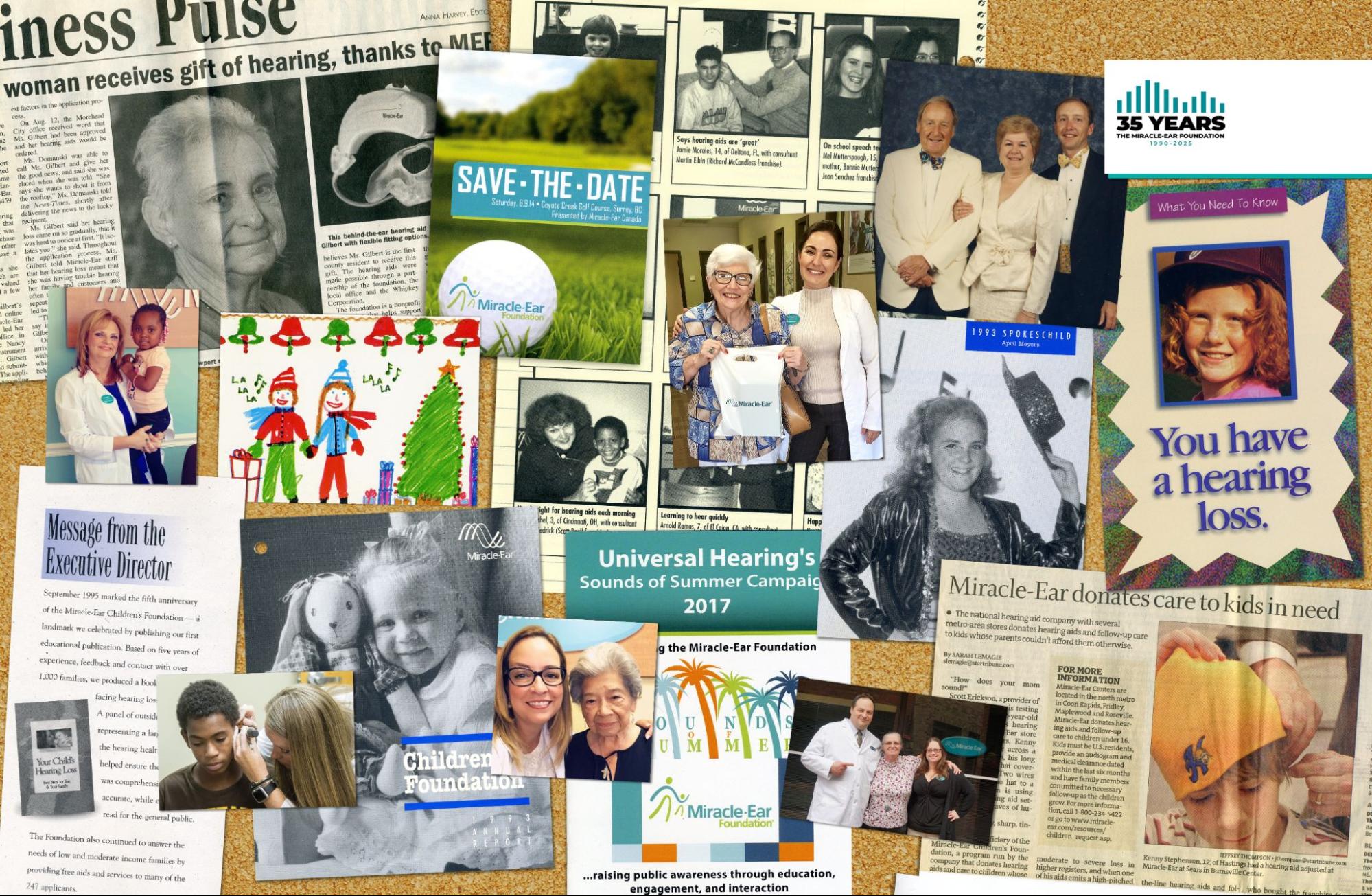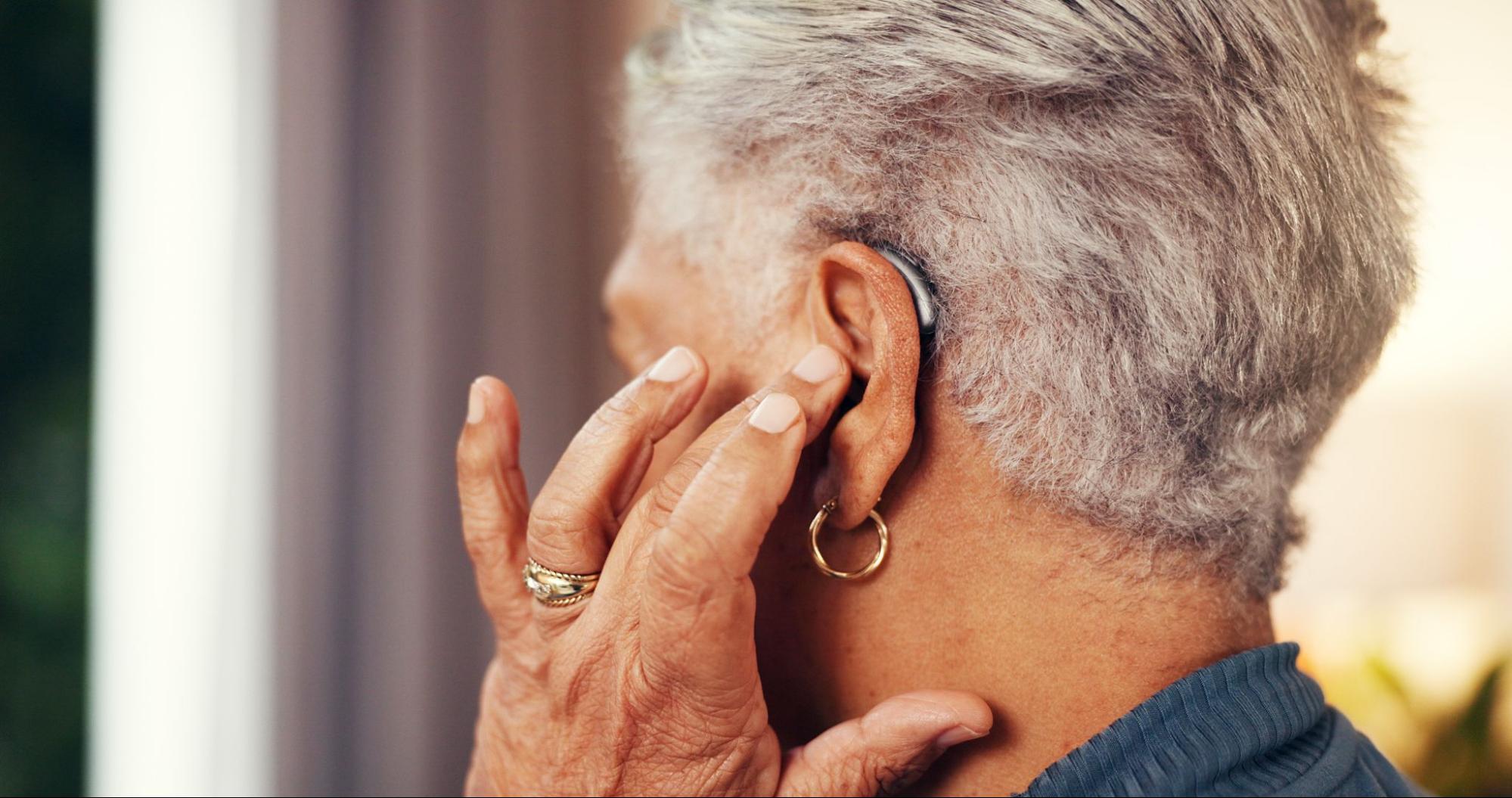Back to school with hearing loss: Tips for kids and parents
.jpeg)
The start of a new school year is a milestone filled with possibility—new friends, new lessons, and new discoveries. For children with hearing loss, though, this transition often comes with added uncertainty. Challenges such as following fast-paced instructions, navigating noisy environments, and staying engaged in group discussions can make the classroom feel overwhelming.
However, with thoughtful preparation and collaboration, kids with hearing loss can thrive academically and socially.
Hearing loss (even mild) affects speech, communication, peer relationships, self-confidence, and can lead to fatigue from listening effort. That's why intentional strategies and support from educators, counselors, and families are more essential than ever as the school year begins.
Here are practical, well-rounded strategies for parents and schools to help children with hearing loss succeed.
1. Start with open conversations
Encourage your child to express how they feel about heading back to school. Listen for worries about hearing teachers, joining conversations, or feeling left out. Reassure your child that support is available and they're not alone. Including teachers and support staff early ensures your child's needs are visible and understood.
2. Partner with teachers and staff
Connect with your child's teacher ahead of time. Explain their hearing needs and how they communicate best. Simple adjustments—like facing forward, pausing to repeat key points, or providing written outlines—can improve attention and comprehension significantly¹.
3. Champion a hearing-friendly classroom
- Advocate to have your child seated near the front, away from noise sources like HVAC systems, hallways, or gym doors.
- Encourage good lighting. Front-facing light helps with lip-reading and facial cues¹.
- Use visual aids, small-group layouts, and structured turn-taking to support understanding.

4. Encourage self-advocacy
Empower your child to ask for adjustments and speak up when they didn't catch something ("Could you repeat that, please?"). Practice at home with role-playing to build comfort and confidence in expressing their needs.
5. Support friendships and social inclusion
Hearing loss can pose challenges for social connection. Arrange playdates for younger children, encourage participation in extracurriculars like art or sports, and collaborate with teachers to ensure your child is included in social activities.
6. Tap into the power of school counselors
School counselors play a crucial role in supporting students with disabilities²³. They can:
- Advocate for your child's academic, social/emotional, and inclusion needs.
- Collaborate with families, teachers, and specialists to support IEP or 504 planning⁴.
- Facilitate peer connections and ensure your child has a voice within the school community³.
7. Stay on top of hearing health
The best place to start is scheduling a hearing test with an audiologist, who can help determine the type and extent of your child's hearing loss and guide you toward the right technology and care. In many states, an audiogram from an audiologist is required before fitting hearing aids or assistive devices⁷.
Once your child has been fitted with devices, be sure they're working properly before school starts. Send spare batteries or chargers, and if your child is capable, teach them basic troubleshooting skills.
8. Make the most of available resources
Schools often offer services like speech-language therapy, educational audiology, or other support through IEPs and 504 Plans. These resources are designed to accommodate students' learning needs. Explore and advocate for them early in the year⁵.

9. Promote hearing health awareness at school
Encourage your school to implement policies that protect students' hearing, like avoiding noisy construction during the school day or teaching hearing protection around loud activities (e.g., marching band or industrial arts classes)⁶.
A message of encouragement
Every child deserves to feel confident, connected, and successful in the classroom, academically and socially. With proactive collaboration, clear communication, and supportive systems, children with hearing loss can step into the school year ready to shine. Parents, educators, and counselors working together can ensure that all students are heard, valued, and empowered.
For families facing financial barriers, help is available. Through the Gift of Sound® program, children and adults across the U.S. have received access to hearing aids and care they otherwise could not afford⁸. If you or someone you know could benefit from this program, learn about Gift of Sound eligibility here.
References
- Nationwide Children's Hospital. (2021). Children With Hearing Loss: Guidelines for Schools. https://www.nationwidechildrens.org/-/media/nch/family-resources/helping-hands/documents/hhiv237.pdf
- American School Counselor Association. (2022). The School Counselor and Students with Disabilities (Position Statement). https://www.schoolcounselor.org/Standards-Positions/Position-Statements/ASCA-Position-Statements/The-School-Counselor-and-Students-with-Disabilitie
- American School Counselor Association. (2023). Supporting Deaf and Hard of Hearing Students (ASCA Newsletter). https://www.schoolcounselor.org/Newsletters/March-2023/Supporting-Deaf-and-Hard-of-Hearing-Students
- American School Counselor Association. (2024). The School Counselor and Section 504 Plan and Process. https://www.schoolcounselor.org/Standards-Positions/Position-Statements/ASCA-Position-Statements/The-School-Counselor-and-Section-504-Plan-and-Proc
- American Speech-Language-Hearing Association. (2021). Common Core State Standards and Students With Hearing Loss. https://www.asha.org/aud/Common-Core-State-Standards-and-Students-With-Hearing-Loss/
- Centers for Disease Control and Prevention. (n.d.). Promoting Hearing Health in Schools. https://archive.cdc.gov/www_cdc_gov/healthyschools/noise/promoting.htm
- American Academy of Audiology. (2022). OTC Hearing Aid Final Rule: Existing State Medical Clearance Requirements and "Prescription" Terminology. https://www.audiology.org/over-the-counter-otc-hearing-aid-final-rule-existing-state-medical-clearance-requirements-and-prescription-terminology/






